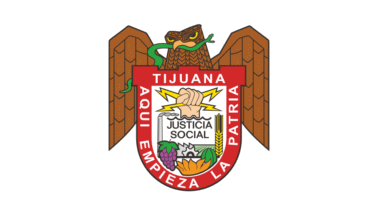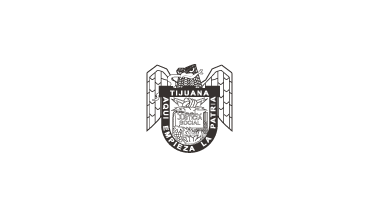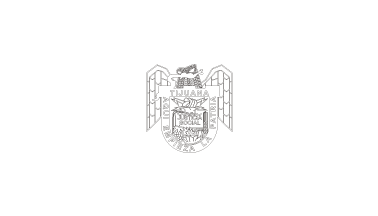
by Tomislav Šipek, 20 December 2024.
1 from Uniradio Informa
Emblem from Wikipedia : Escudo_de_Tijuana

Last modified: 2025-01-11 by daniel rentería
Keywords: mexico | baja california | tijuana | bandera municipal y escudo municipal (baja california) | escudo del municipio (baja california) | bandera del municipio (baja california) | héraldica municipal de baja |
Links: FOTW homepage |
search |
disclaimer and copyright |
write us |
mirrors

by Tomislav Šipek, 20 December 2024.
1 from
Uniradio Informa
Emblem from Wikipedia : Escudo_de_Tijuana
See also:
Municipal President Ismael Burgueño Ruiz appears to be the first to use the flag; if this is truly the case, then that means the flag was adopted on September 30 (the same day he was seen taking oath of office).
Daniel Rentería, 20 December 2024

by Daniel Rentería, 1 September 2022.
1 from
psn.si |
2 from
cadenanoticias.com
Emblem from Wikipedia : Escudo_de_Tijuana

by Daniel Rentería, 20 August 2024
1 from
bcreporteros.com
Emblem from preventionweb.net
Tijuana uses a flag unofficially, with its coat of arms in black centered on a white field. A version with a less visible coat of arms also exists;
it appears this was used in previous years.
Daniel Rentería, 20 August 2024
.gif)
from Wikimedia Commons, located 20 August 2024
Published in the issues of El Heraldo de Baja California of January 20 and 24, 1963, the municipal council invited people to design a coat of arms for the municipality. In the end, the winners of the contest were architect Homero Martínez de Hoyos and journalist Salvador Zapata. Mayor Ildefonso Velázquez presented the coat of arms that same year, and it started to be used officially. Description of the coat of arms, according to Council Resolution 46 of the 4th of March 2021:
In the red border lies a historic motto proclaimed by Adolfo López Mateos while running for presidency of the Republic: "Aquí empieza la patria" [Here the fatherland begins; it alludes to the fact it is Mexico's westernmost city]. In the center of the coat of arms are the words "Justicia Social" [Social Justice], which was the motto of Adolfo López Mateos in his first mandate of the country. The coat of arms has three colors which characterize the history and cultures of the City: Red, white, and brown.
-Red represents power, triumph, strength, bravery, courage, and trust in attitudes.
-White represents purity, honesty, respect, peace, and bonding.
-Brown which highlights the eagle's color represents the color of the lands of the state, agriculture, and the harvested lands.
The coat of arms is composed of seven historical symbols, which combined with the entire emblem, represent part of the living, culture, and occurrences which are found in the city of Tijuana.
-Flame: located in the lower part of the coat of arms, representing fire. It is a heraldic symbol which represents the yearning for improvement, admiration, greatness, power, and the light.
-Grapes, hop, and wheat: situated in the lower part of the coat of arms along with the flame. These make reference to the plantations, agriculture, and commerce which make a tribute to the characteristics of its lands, nourishment, unity, confidence, family, and human development.
-Eagle: found in the upper part of the coat of arms. The Mexican eagle with its stylized wings having geometric lines and the serpent in its beak represent the pride and feeling of pertaining to the Mexican identity. This is one of the most emblematic elements of the blazon and adds identity to the Coat of Arms.
-Fist clenching rays: located in the middle of the coat of arms. The hand is holding two rays which represents virtues of the entity like: strength, energy, light, bravery, truth, unity, clarity, liberty, abundance, and the wealth of the state. [It appears the meaning originally intended was as an allusion to the Rosarito thermoelectric plant constructed in the same time; this is now part of the municipality of Playas de Rosarito, according to the national encyclopedia of municipalities.]
The clenched arm rises above the water, which clearly identifies the municipality's geographic location. Although not mentioned in the text,
there is also a cogwheel and chimney which represent industry.
Daniel Rentería, 20 August 2024
Anything below this line was not added by the editor of this page.